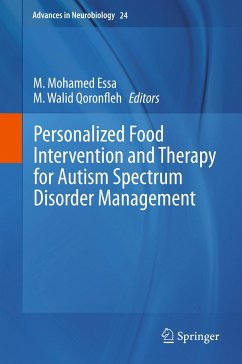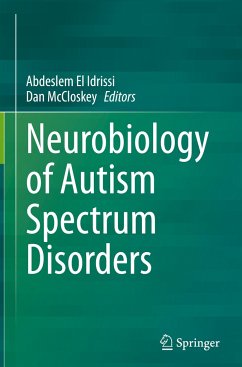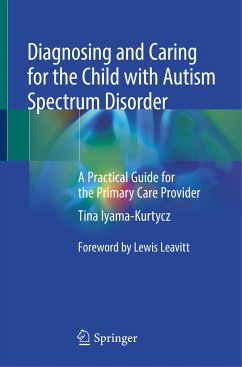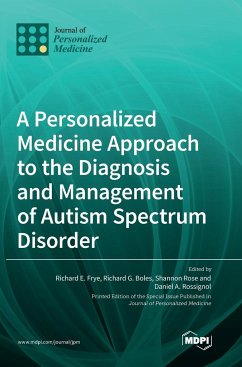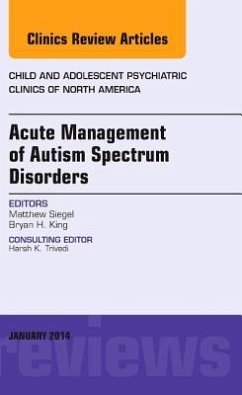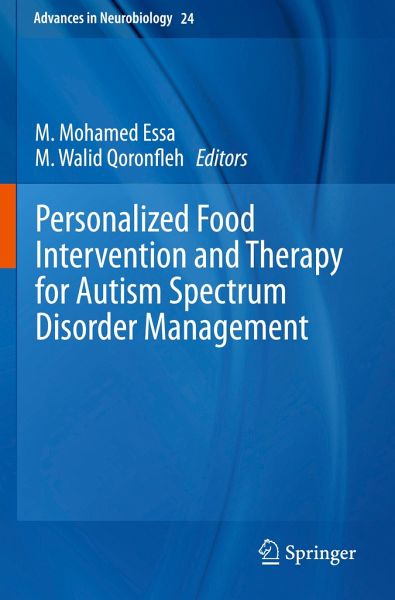
Personalized Food Intervention and Therapy for Autism Spectrum Disorder Management
Versandkostenfrei!
Versandfertig in 6-10 Tagen
113,99 €
inkl. MwSt.

PAYBACK Punkte
57 °P sammeln!
The book focuses on implications of traditional and processed foods for autism spectrum disorder (ASD) intervention and management. Numerous phytonutrients and pharmacologically active compounds in edible natural products and diet could influence and offer protection to neuronal dysfunction that occurs due to ASD.The neuroprotective effects of various fruits, vegetables, nuts and seeds phytochemicals, and other natural bioactive ingredients against ASD and related conditions are discussed. Topics such as the possible neuroprotective mechanism of action of these foods and the therapeutic role o...
The book focuses on implications of traditional and processed foods for autism spectrum disorder (ASD) intervention and management. Numerous phytonutrients and pharmacologically active compounds in edible natural products and diet could influence and offer protection to neuronal dysfunction that occurs due to ASD.
The neuroprotective effects of various fruits, vegetables, nuts and seeds phytochemicals, and other natural bioactive ingredients against ASD and related conditions are discussed. Topics such as the possible neuroprotective mechanism of action of these foods and the therapeutic role of antioxidants in relation to ASD are addressed. This book also highlights the scope of using anti-inflammatory agents and antioxidants to promote neurogenesis and improve other symptoms in ASD. It emphasizes personalized nutritional approaches with dietary management of neurodevelopmental disorders/ASD cases.
Information in this book is relevant to researchers in the field of complementary and alternative medicine, nutraceuticals, neuroscience, agriculture, nutrition, and food science. This volume is beneficial to students of varying levels, and across multiple disciplines.
The neuroprotective effects of various fruits, vegetables, nuts and seeds phytochemicals, and other natural bioactive ingredients against ASD and related conditions are discussed. Topics such as the possible neuroprotective mechanism of action of these foods and the therapeutic role of antioxidants in relation to ASD are addressed. This book also highlights the scope of using anti-inflammatory agents and antioxidants to promote neurogenesis and improve other symptoms in ASD. It emphasizes personalized nutritional approaches with dietary management of neurodevelopmental disorders/ASD cases.
Information in this book is relevant to researchers in the field of complementary and alternative medicine, nutraceuticals, neuroscience, agriculture, nutrition, and food science. This volume is beneficial to students of varying levels, and across multiple disciplines.



